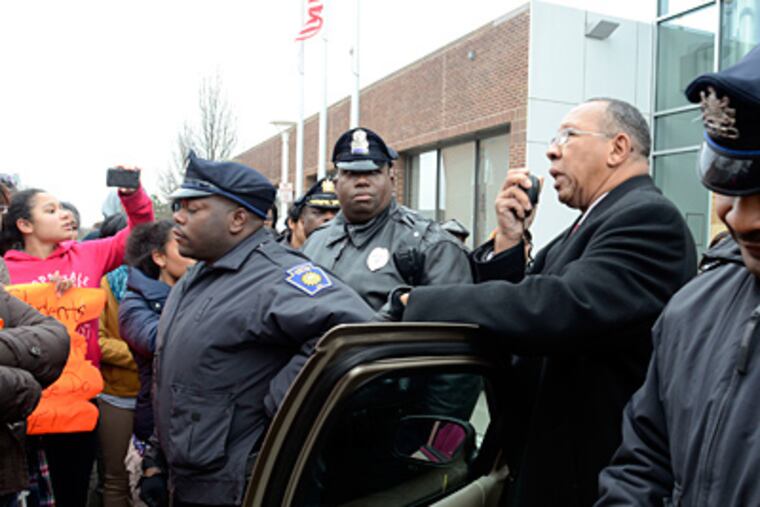Chester-Upland School District asks judge to reject state takeover plan
Saying the state's recovery plan would be a setback for the troubled Chester Upland School District, the attorney for the district asked a judge Friday to reject a petition to put the schools in the hands of a state-appointed receiver.

Saying the state's recovery plan would be a setback for the troubled Chester Upland School District, the attorney for the district asked a judge Friday to reject a petition to put the schools in the hands of a state-appointed receiver.
"The plan itself is a contradiction," George B. Dawson told Delaware County Court Judge Chad F. Kenney, adding that it would hurt special-needs students and close two better-performing schools.
Robert M. DiOrio, representing Education Secretary Ronald Tomalis, was seeking to have Kenney name Joseph P. Watkins, the state-appointed chief recovery officer, as the district's receiver.
Kenney said he would make his decision within 10 days, the period specified in the distressed-district law.
If Watkins is made receiver, he would oversee the district and the implementation of his recently released, "radical and bold" financial and academic recovery plan.
Tomalis requested the appointment of Watkins because the school board, in a 5-4 vote, rejected the recovery plan.
It calls for raising academic performance and luring back students who have left the district's schools.
But it also calls for laying off staff, closing school buildings, increasing class size, and raising taxes.
And if the district failed to meet certain scholastic performance goals, such as federal annual progress targets by the 2014-15 school year, the plan calls for the schools to be run by external management operations such as charter schools, cyber charters, and education management companies.
Dawson argued that the law that allowed for the plan's creation was unconstitutional, and he questioned how the district could attract students if class sizes increased and better-performing schools were closed.
Dawson also said the district was no longer in financial distress - a point disputed by DiOrio - and sought to call acting Superintendent Thomas Persing, business manager Brian Feick, and School Board President Wanda Mann to testify.
Kenney did not allow the testimony, citing the "very, very narrow" scope of the petition before him.
Regarding the district's financial status, Kenney said the time to challenge the district's distressed designation was when Tomalis declared it distressed months ago.
"The district is in financial distress," DiOrio said.
The judge said the witnesses could be called to testify later if the district files an appeal.
Watkins and Mann, both in court for the proceeding, declined to comment.